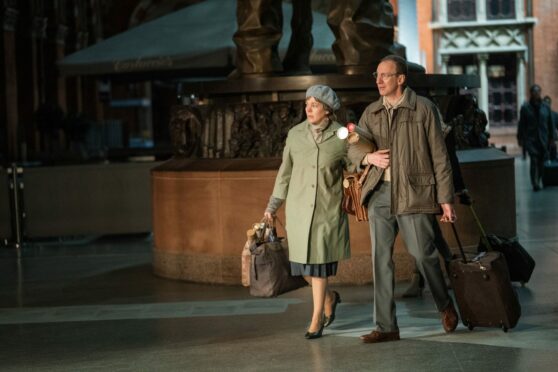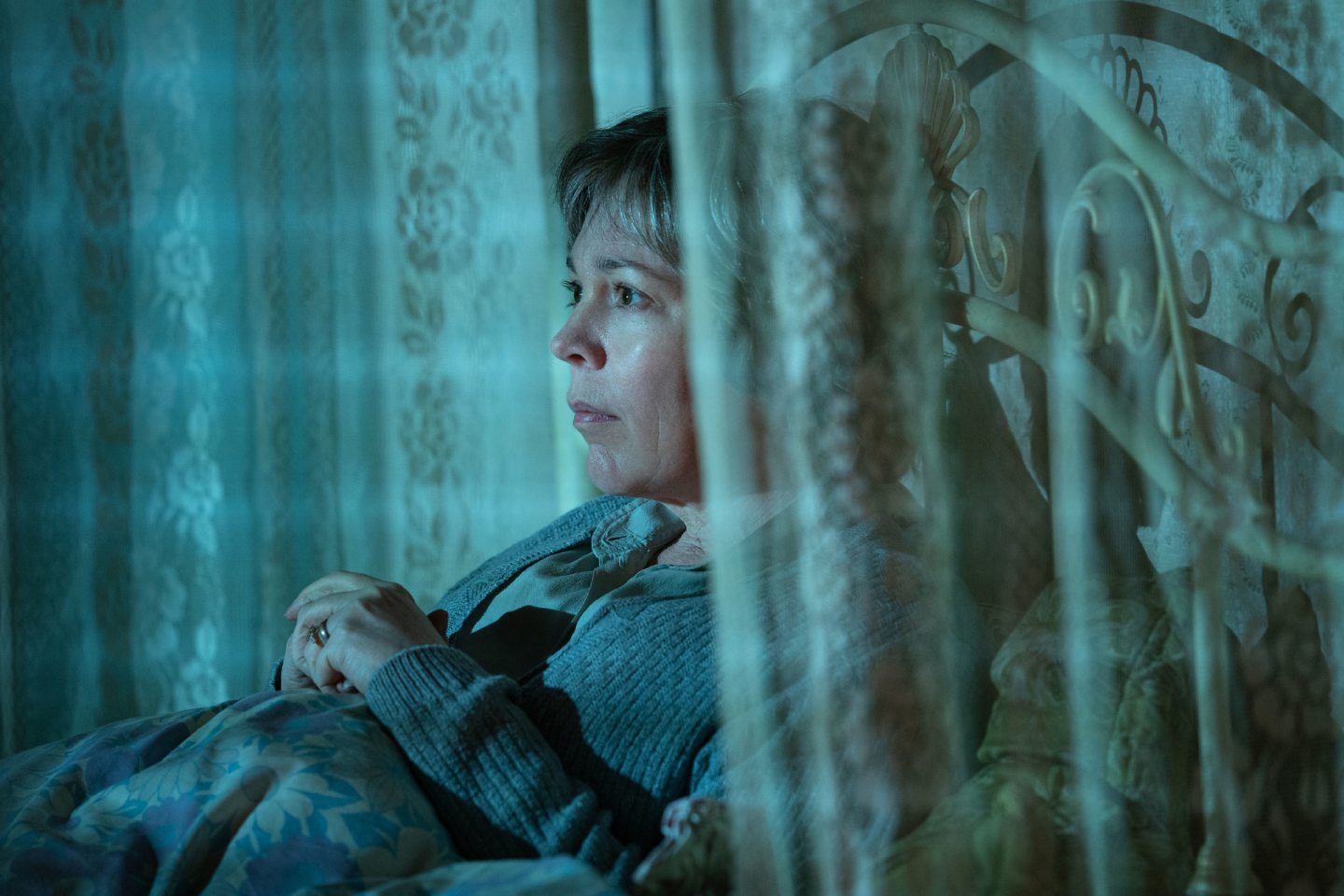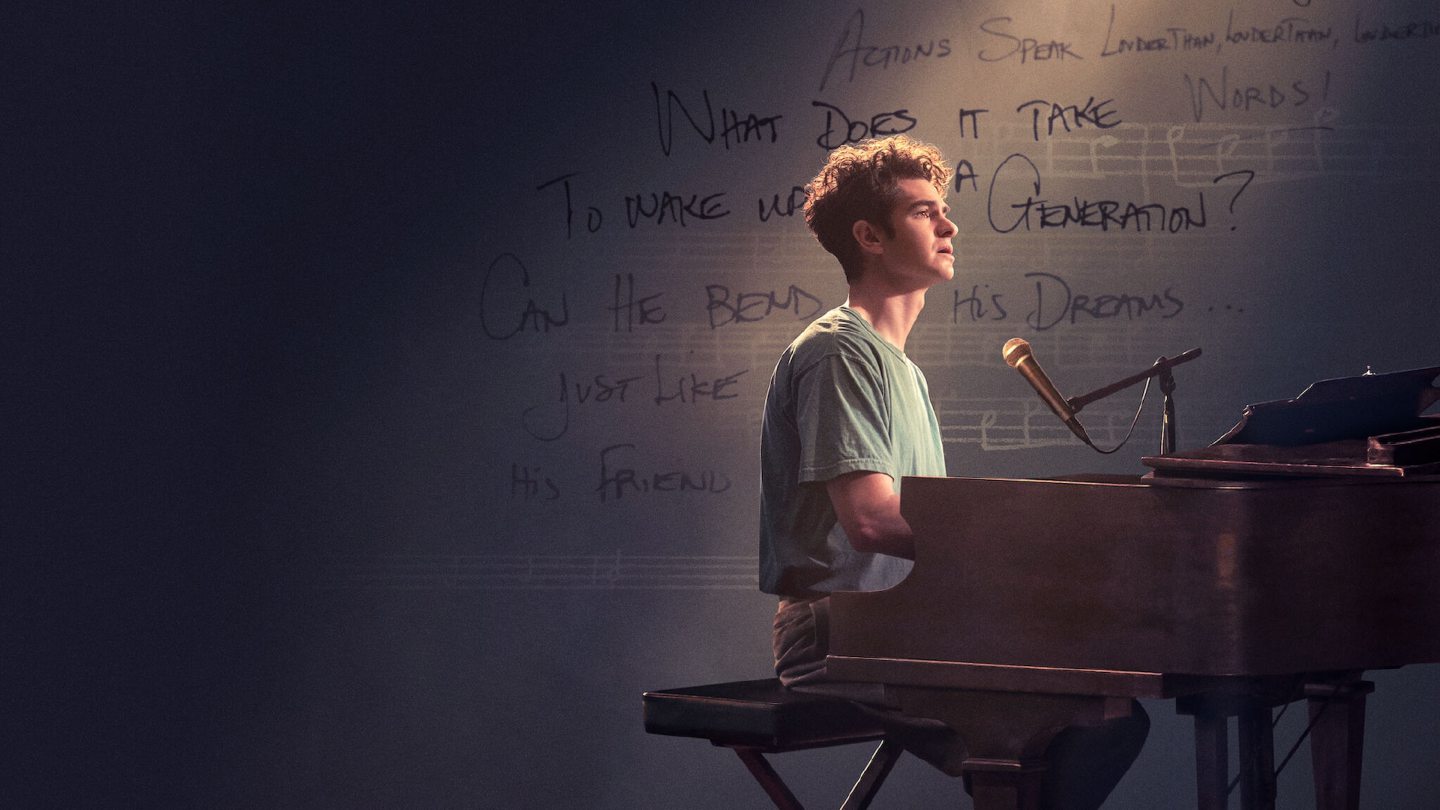There’s no shortage of true crime dramas on television right now, but there’s really nothing like Landscapers (Sky Atlantic).
Based on the strange murder case involving Nottingham couple Susan and Christopher Edwards – played by Olivia Colman and David Thewlis – this four-part series chooses to tell the macabre story in a way that is unlike any other show on television.
Right from the opening scene, when we literally hear the director shout “Action!”, this is as much about the way crime dramas are created and presented as it about the actual crime.
For some viewers – me included – that’s a refreshingly original way to tell the story – for others, “aggressively weird” might be a polite way to put it.
There’s no real “did they?/didn’t they?” element to Landscapers, since we learn from the outset that the married couple were found guilty in 2014 of murdering Susan’s parents and burying them in their own back garden.
Although the crime itself – sad and strange as it is – maybe doesn’t warrant a four-part series, Landscapers earns its running time because of what they tried to do with the format.
Susan’s love of cinema and movie memorabilia gives writer Ed Sinclair and director Will Sharpe the chance to get creative by dismantling – sometimes literally – audience expectations of what a crime drama is supposed to be.
Parts of the story are filmed like the Hollywood movies Susan adores, and at times we even see Thewlis and Colman literally walking out of the film set, past Covid-attired crew members.
If you’ve come to Landscapers expecting a typical true crime drama, these flights of fantasy may well come off as irritating.
But speaking as someone who gets easily bored by this genre, I found these attempts to do something radically different brilliantly original.
Superman’s return to form
My expectations of Superman & Lois (BBC1) were pretty low because of how dull the recent big-screen adventures of the superhero have been.
But it won me over in the end because it feels so different to the Zack Snyder films.
In this series, Clark Kent isn’t battling CGI baddies and trying to save the planet, he has an even bigger challenge – raising twin teenage sons at the family farm in Smallville.
I’m not saying he won’t be saving the planet at some point, but this series seems more concerned with the family drama, which is quite refreshing.
After what seems like decades of lacklustre Superman appearances, this feels like a return to form.
Niche show for film buffs
While the audience for Netflix’s new series Voir is undoubtedly niche, I am pleased to see the streaming giant putting their billions towards shows that won’t necessarily attract Squid Game-sized numbers.
This collection of visual essays about cinema – see what I mean about niche? – features films like Jaws, Lawrence Of Arabia and 48 Hours, and I found each bite-sized episode rewarding in its own way.
Depressing viewing
There was a time when conspiracy theories had a quaint simplicity, like who assassinated JFK?
But these days, aided by social media and their algorithms, even the barmiest of ideas can spread like wildfire and be believed by millions of people around the globe.
The Cult Of Conspiracy: QAnon (Channel 4) looked at arguably the most famous conspiracy of our modern age and examined what makes followers of the QAnon cult so sure of themselves.
Reporter Ben Zand’s programme made for depressing viewing, seeing how our so-called “post-truth” world seems to be the perfect petri dish to breed and distribute dangerous conspiracy theories.
Film of the week: tick, tick… BOOM! (Netflix)
Hamilton creator Lin-Manuel Miranda makes his directorial debut with this vibrant musical biopic of Rent composer Jonathan Larson.
Andrew Garfield, who up until now I can take or leave, completely won me over in an award-worthy turn as the New York writer, who died the night before the first public performance of what would become a blockbuster Broadway musical.
tick, tick… BOOM! is based on Larson’s semi-autobiographical Off-Off Broadway solo show that told the story of his failed first musical, an ambitious quasi-sci-fi project called Superbia.
It’s that crisis of confidence that provides the backbone of this moving film, as Larson approaches the age of 30 and contemplates the terrifying possibility that his lifelong passion and skill for musical theatre may amount to nothing.
That certainly wasn’t the case – in fact, he would go on to win the Pulitzer Prize, albeit posthumously.




